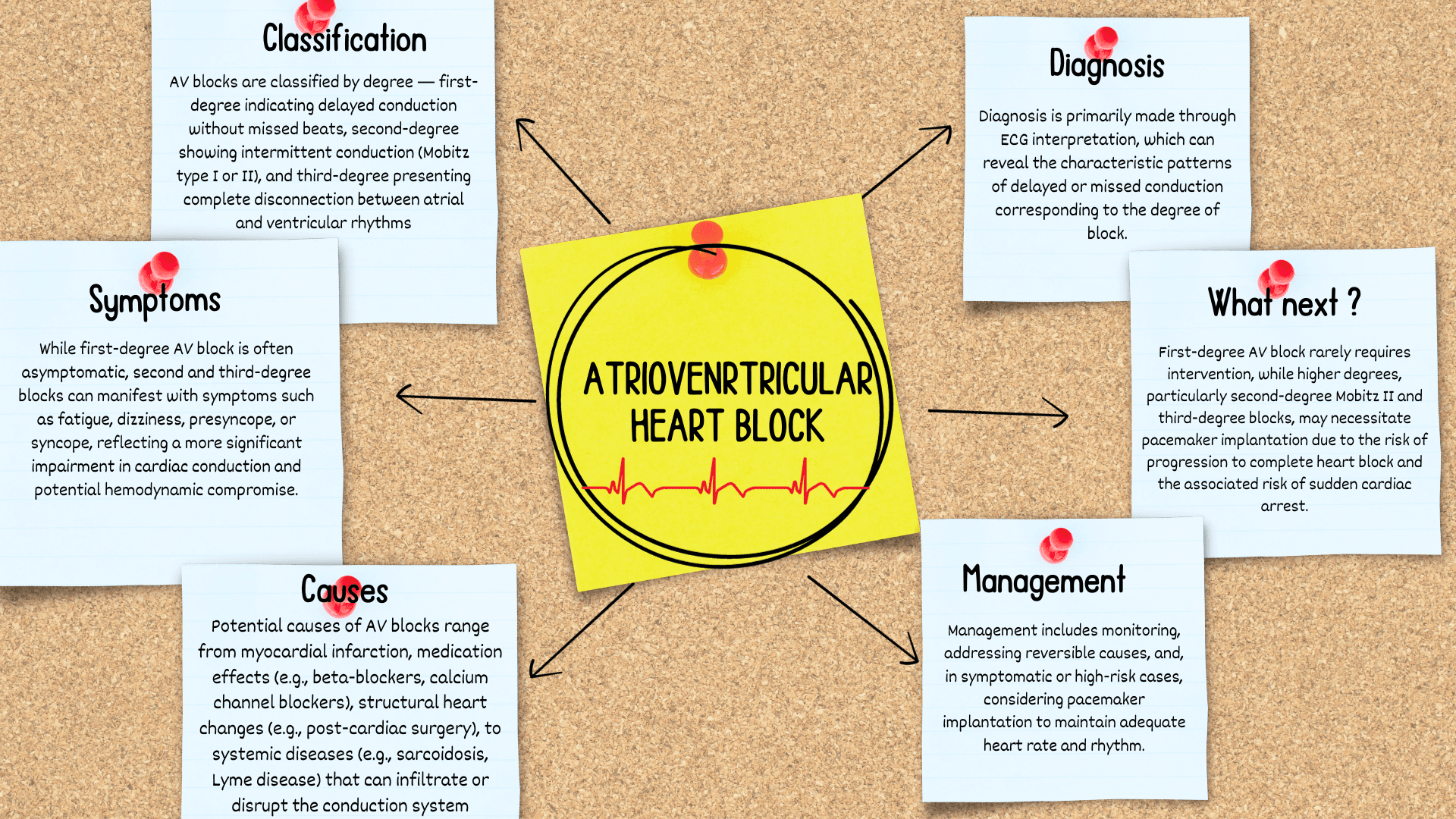Download A4Medicine Mobile App
Empower Your RCGP AKT Journey: Master the MCQs with Us!

Atrioventricular (AV) blocks are a group of heart rhythm disorders characterized by a delay or interruption in the conduction of electrical impulses from the atria to the ventricles. The severity of AV block is traditionally classified into degrees, which indicate the extent of impairment in atrial-ventricular conduction.
| Degree | Definition | ECG Characteristics | Causes/Associations | Clinical Significance |
|---|---|---|---|---|
| First-degree AV block | Delayed conduction without missed beats | PR interval > 0.20 seconds, consistent from beat to beat | • Increased vagal tone ( for e,g in well-trained athletes • Myocarditis, degenerative changes in the conduction system •certain medications (e.g., digoxin, beta-blockers) • Cardiac surgery can lead to post-operative changes in conduction, including first-degree AV block. • Elevated levels of potassium in the blood (hyperkalemia) can affect cardiac conduction. | ♦ Often asymptomatic, they may not require treatment ♦ Clinically, first-degree AV block is generally considered benign and doesn't cause hemodynamic instability. |
| Second-degree AV block Type I (Wenckebach/Mobitz I) | Progressive conduction delay until a beat is dropped | Progressive lengthening of the PR interval until an atrial impulse is not conducted (P wave with no subsequent QRS complex). The cycle then repeats. | ♦ reversible ischaemia ♦ myocarditis ♦ increased vagal tone ♦ following cardiac surgery ♦ medication related as... |
Try our Free Plan to get the full article.